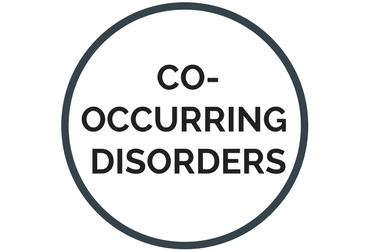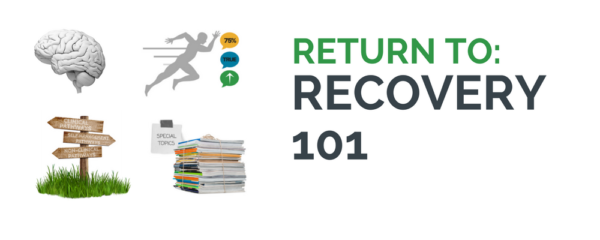
Co-occurring Disorders
Co-occurring disorders are defined as the occurrence of two disorders or illnesses in the same person. Although, this term can refer to any combination of disorders and diseases, it often is used to describe someone who suffers from another psychiatric illness (e.g., major depression) in addition to a substance use disorder.
Symptoms may interact between conditions to influence the course and prognosis of both disorders. Also referred to as having co-occurring conditions or “dual diagnosis.”
Approximately 8.1 million adults in the U.S. have co-occurring disorders. This constitutes more than 40% of those with substance use disorder (2015 NSDUH)
“It is often difficult to disentangle the overlapping symptoms of drug addiction and other mental illnesses, making diagnosis and treatment complex.” – Nora Volkow, Director of the National Institute on Drug Abuse
Individuals diagnosed with a substance use disorder are twice as likely to suffer from a mood or anxiety disorder, antisocial personality disorder or conduct disorder compared to the general population. Other psychiatric disorders commonly seen in combination with substance use disorder include: Schizophrenia, Post-traumatic Stress Disorder (PTSD), Bipolar Disorder, and Attention-Deficit Hyperactive Disorder (ADHD).
NESARC DATA REPORTS CURRENT (within the last 12 months) PREVALENCE OF CO-OCCURRENCE OF OTHER MENTAL HEALTH DIAGNOSES AMONG:
Individuals with drug use disorder:
- 44% have personality disorders
- 28% have mood disorders
- 24% have anxiety disorders
Individuals with alcohol use disorder:
- 25% have personality disorders
- 16% have mood disorders
- 16% have anxiety disorders
Individuals with both drug and alcohol use disorders:
- 51% have personality disorders
- 35% have mood disorders
- 27% have anxiety disorders
- 46% have post-traumatic stress disorder
THE RELATIONSHIP BETWEEN SUBSTANCE USE DISORDERS & OTHER PSYCHIATRIC ILLNESS
THE CHICKEN OR THE EGG
Substance use may lead to the onset of symptoms of another mental illness. Substance use can also cause symptoms that look like symptoms of mental illness but once abstinent the person no longer suffers from those symptoms (often referred to as “substance-induced” symptoms). Mental illness may also precede and lead to substance use, as a method of self-medication, to alleviate symptoms such as anxiety, depression, and discomfort.
CO-OCCURING DISORDERS MAY RESULT FROM:
- Genetic Factors: Genetic vulnerabilities may increase the likelihood of development of both a substance use disorder and other mental illness. Also, substance exposure may act as an epigenetic factor, in that it may activate and turn on genes associated with mental illness that would not otherwise be turned on were it not for the substance exposure.
- Environmental Factors:Trauma (e.g., physical or sexual abuse; military combat), other stress, or childhood/adolescent exposure to substance use, may increase susceptibility to both substance use disorder and other mental illness.
- Developmental Factors:Substance use disorder and other mental illness often surface during adolescence and young adulthood, when the brain experiences dramatic developmental change. Early exposure to substance use may affect brain development, increasing risk for mental illness, and visa-versa.
Findings from a 2009 SAMHSA scientific literature review found that co-occurring disorders are best treated with a comprehensive, long-term, staged (e.g. stages of treatment) approach to recovery; assertive outreach as opposed to more passive clinical approaches; person-centered motivational interventions; help clients acquire skills and supports to manage both illnesses and to pursue functional goals; and cultural sensitivity and competence.
BARRIERS TO TREATMENT FOR CO-OCCURRING DISORDERS:
- Lack of healthcare providers trained in treating both substance use disorder and other mental illness in an integrated way.
- Policy barriers that limit the functional integration of substance use and mental health services (e.g. organizational structure, financing, regulations, and licensing).
- Lack of clear service models, administrative guidelines, contractual incentives, quality assurance procedures, and outcome measures need for treatment programs to effectively implement co-occurring interventions in treatment programs.
- Stigma associated with both substance use disorder and mental illness.
- Basic interventions treating co-occurring conditions are not always incorporated into the mental health programs in which patients receive care (SAMHSA, 2009).
TREATMENT APPROACHES
In 2016, according to National Survey of Substance Abuse Treatment Services data, 53% of addiction treatment facilities in the United States reported providing programs and groups specifically tailored towards patients with substance use and co-occurring mental disorders.
Research has found that regular substance use disorder treatment programing, such as cognitive behavioral therapy, is known to improve the psychological functioning of patients with co-occurring disorders at similar rates to psychiatrically-integrated or co-occurring-specific treatment approaches (McGovern et al., 2015; Bergman et al., 2014; Brown et. Al, 1997; Leon & Jainchill, 1982). Some of these co-occurring specific treatment approaches are listed in more detail below.
CO-OCCURRING-FOCUSED TREATMENT APPROACHES
- Integrated Dual Disorder Treatment (IDDT)is a multidisciplinary intervention that combines pharmacological (e.g. medication), psychological, educational, and social mechanisms to promote recovery for individuals with co-occurring disorders.
- Core treatment components of IDDT include
-
- Multidisciplinary Team
- Stage-Wise Interventions (stages of change, stages of treatment)
- Access to Comprehensive Services (e.g., residential, employment, etc.)
- Time-Unlimited Services
- Assertive Outreach
- Motivational Interventions
- Substance use Counseling
- Group Treatment
- Family Psychoeducation
- Participation in Alcohol & Drug Self-Help Groups
- Pharmacological Treatment
- Interventions to Promote Health
- Secondary Interventions for Treatment of Non- Responders
- Seeking Safety is an evidence-based, integrated counseling model for individuals with trauma and substance use disorder that incorporated, but does not require patients to disclose their trauma narrative. Key principles of the model include gaining safety, focusing on ideals, and attention to cognitive, behavioral, interpersonal, and case management.
- Integrated Group Therapy (IGT) is an evidence-based providing treatment for adults with co-occurring bipolar and substance use disorders. IGT emphasizes abstinence from alcohol and other drugs, and centers on improving symptom recognition for substance use and mood, skill training for relapse prevention and life functioning, and medication adherence.
- CITATIONS
-
- Bergman, B. G., Greene, M. C., Slaymaker, V., Hoeppner, B. B., & Kelly, J. F. (2014). Young adults with co-occurring disorders: Substance use disorder treatment response and outcomes. Journal of Substance Abuse Treatment, 46(4), 420-428. doi: 10.1016/j.jsat.2013.11.005
- McGovern, M. P., Lambert-Harris, C., Xie, H., Meier, A., McLeman, B., & Saunders, E. (2015). A randomized controlled trial of treatments for co-occurring substance use disorders and post-traumatic stress disorder. Addiction, 110(7), 1194-1204. doi: 10.1111/add.12943
- Bogenschutz, M. P., Rice, S. L., Tonigan, J. S., Vogel, H. S., Nowinski, J., Hume, D., & Arenella, P. B. (2014). 12-step facilitation for the dually diagnosed: a randomized clinical trial. J Subst Abuse Treat, 46(4), 403-411. doi: 10.1016/j.jsat.2013.12.009
- Brown S. A., Glasner-Edwards S. V., Tate S. R., McQuaid J. R., Chalekian J., Granholm E. Integrated cognitive behavioral therapy versus twelve-step facilitation therapy for substance-dependent adults with depressive disorders. J Psychoact Drugs 2006; 38: 449–60.
- Flynn, P. M., & Brown, B. S. (2008). Co-occurring disorders in substance abuse treatment: Issues and prospects. Journal of Substance Abuse Treatment, 34(1), 36-47. doi: 10.1016/j.jsat.2006.11.013
- McGovern, M. P., Xie, H., Segal, S. R., Siembab, L., & Drake, R. E. (2006). Addiction treatment services and co-occurring disorders: Prevalence estimates, treatment practices, and barriers. Journal of Substance Abuse Treatment, 31(3), 267-275.
- Substance Abuse and Mental Health Services Administration. Integrated Treatment for Co-Occurring Disorders: The Evidence. DHHS Pub. No. SMA-08-4366, Rockville, MD: Center for Mental Health Services, Substance Abuse and Mental Health Services Administration, U.S. Department of Health and Human Services, 2009.
- Weiss RD, Griffin ML, Kolodziej ME, Greenfield SF, Najavits LM, Daley DC, Doreau HR, Hennen JA. A randomized trial of integrated group therapy versus group drug counseling for patients with bipolar disorder and substance dependence. Am J Psychiatry. 2007 Jan;164(1):100-7.


